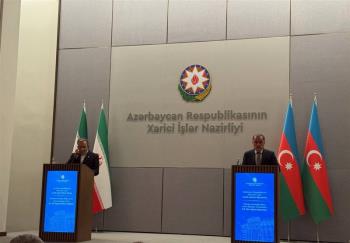Alwaght- Israelis in the occupied territories awoke to fear in the morning ether. After Hezbollah leader Sayed Hasan Nasrallah made a speech on Monday night vowing revenge for the assassination of Commander Samir Kuntar, Israeli analysts and military experts spent a restless night deriving scenarios of a possible retaliation while the Israeli Occupation Forces increased its alert along the border.
In an article on Ynet News under the title of “How Hezbollah may take revenge”, Yoav Zitun said Hezbollah’s retribution is just a matter of time.
The article listed three main scenarios that will likely result from Hezbollah’s dreaded reaction:
First, it mentioned the fortification plan for towns near the border, recounting Hezbollah’s attack on Givati forces last year which led to the IOF’s acceleration of a program to build an eight-meter-high separation barrier near the fence along the Lebanese border.
Second, it regarded the refugee camps facing the occupied territories as a possible military threat. The camps house around 12,000 Syria refugees from Damascus and Daraa.
Last but not least, the article acknowledged Hezbollah as a compartmentalized and confident army:
“IDF infantry brigades have had their training adjusted to deal with a different Hezbollah from the one they fought in 2006. They are now confronting brigades and battalions that know how to wage coordinated warfare based on organized combat doctrines and experience gained in Syria, along with capabilities in outflanking, suppressive fire with machine guns, and command and control techniques, as well as sophisticated ways of gathering intelligence such as with the use of drones.”
Not only does this confession admit Hezbollah’s military capabilities and the danger it poses to the Israeli occupation’s regime of Palestine, but it also refutes Zionist claims that the resistance’s involvement in Syria has been debilitating. Clearly, Hezbollah has gained experience from the Syrian conflict much to the chagrin of Tel Aviv.
But perhaps an even more representative piece reflecting the Israelis’ underlying principle is Haaretz’s analysis of the situation. “When Nasrallah Promises Revenge, Israel Better Take Him at His Word” is the title of an article written by Amos Harel, who seems to have learned quite a lesson from previous experiences of the Hezbollah leader’s honesty, particularly after the July 2006 war. Despite this, Harel thought it was unlikely that Hezbollah’s revenge will lead to new war.
“Hezbollah's retaliation for Samir Kuntar's death will likely not be of a scope that could spark a new war, but past experience shows group takes questions of honour and image quite seriously in its balance … with Israel,” it read. However, war or no war, the Israelis are unable to shed their fears.
After the Popular Front for the Liberation of Palestine- fired rockets unto the northern occupied territories landing near Shlomi while sirens sounded in Nahariya, the mayor of Nahariya and the head of the Shlomi Regional Council ordered the opening of bomb shelters in their respective locales late Sunday. The quickness of the response indicated the extent of the prevalence of fear among settlers. They are always on their guard.
The media reflected this apprehensive atmosphere. “Israel Today”, another Zionist media outlet, commented immediately after Sayed Nasrallah’s speech saying “The Israelis must expect the response as of tonight.”The Jerusalem Post, on the other hand, was more precise about the concerns. “The big question worrying Israel following the assassination of Samir Kuntar was whether Hezbollah will respond and, if so, how and on which front.”
All of these reactions are proof of the degree to which the leader’s words are taken seriously by the Israelis. One of the most dramatic moments of Monday’s speech was when he reiterated that the resistance reserves the right to respond to Israeli foul play.
"Martyr Samir Qantar was one of us, he was a leader in the resistance and was assassinated by Israel, therefore we will respond to his assassination in the time, place, and way we see appropriate,” promised the leader after he eulogized the former detainee.
Hezbollah has already responded to some of the Israeli assaults against its members by pinpointing attacks against the IOF. A year ago, Hezbollah ambushed Givati forces near the village of Ghajar killing several Israeli soldiers in retaliation for the assassination of several resistance fighters, including Jihad Mughniyeh, son of martyred Hezbollah commander Imad Mughniyeh, in the Syrian Golan Heights.
Yet this is not to say that these attacks are the end of it. While some Israelis claimed that the scores have been settled with the killing of Kuntar who spent almost 30 years in Israeli prisons, Sayed Nasrallah has made clear that it is Hezbollah that will have the final saying in this confrontation and that ultimately scores will only be settled when the resistance group declares it and not the other way around.
Meanwhile, time and experience has proven Sayed Nasrallah’s truthfulness and no one knows this better than the Israelis who have learned to be all ears when the Hezbollah leader speaks.


























